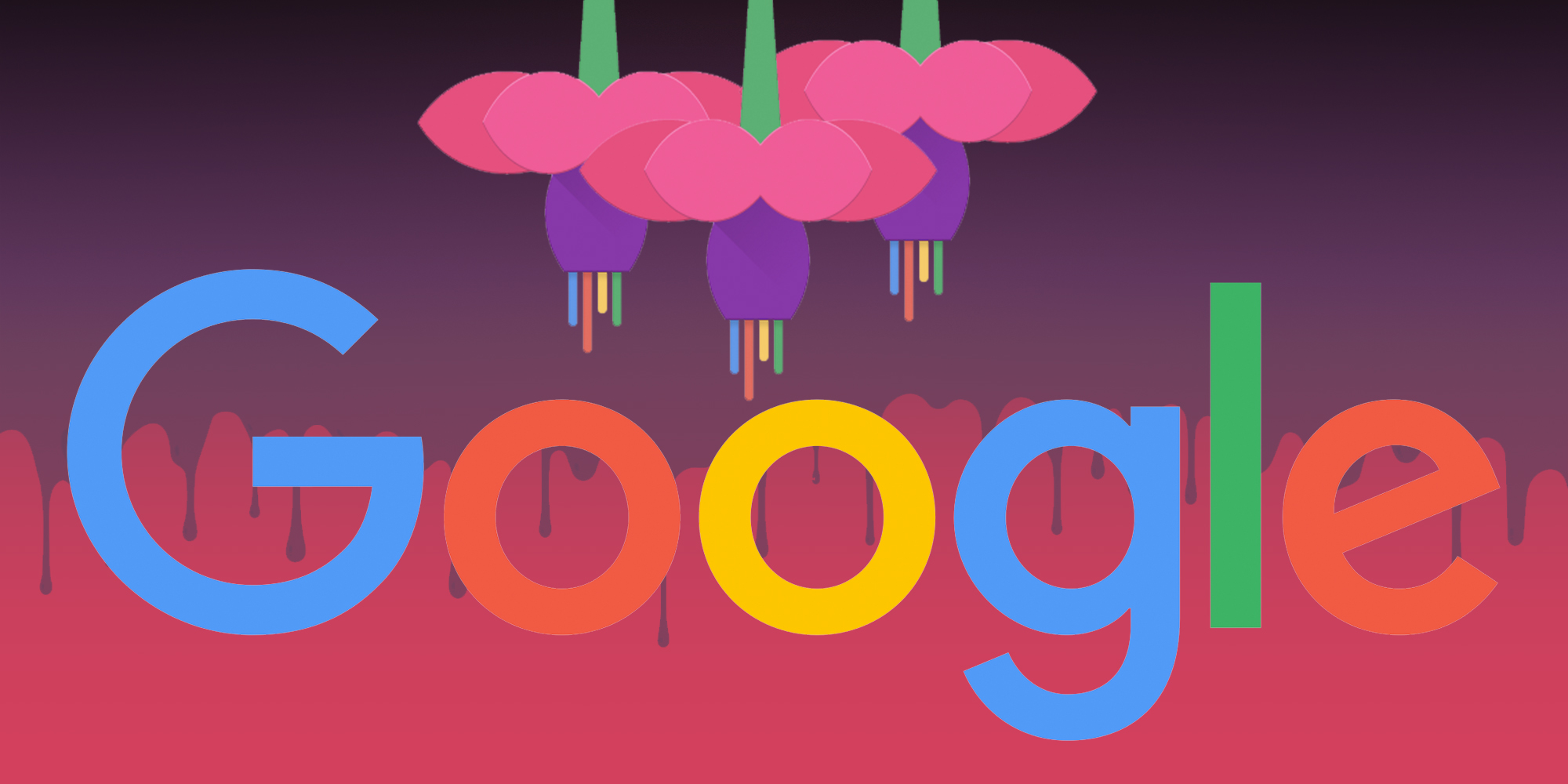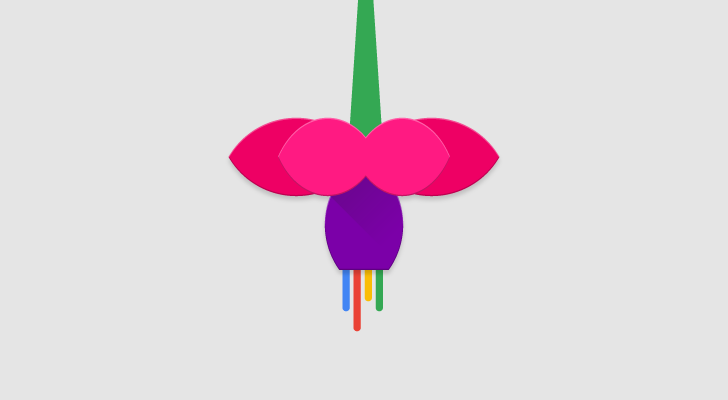Andromeda and Fuchsia operating systems - more puzzles from Google

Last summer, the network appeared information that Google is developing a new operating system, the basis of which is not the Linux kernel. On the development of the company it became known after Google engineers pretty well progressed in the development of the project. Commits appeared with enviable regularity, and third-party developers began to carefully study the contents of the repository with the name Fuchsia.
It turned out that this OS is based on (L) ittle (K) ernel and Magenta. The first is a small OS designed for small low-performance devices. Magenta is used in modern mobile devices and personal computers with advanced configuration. Fuchsia, as you can understand, is a hybrid platform. Now the study of this operating system continues. In addition, last year it became known about another initiative of the company. This is a new model of notebook Pixel, which Google is going to present in the third quarter of this year.
And on this laptop, judging by the information leaked to the Internet, there should be its own OS, developed by two teams at once - those employees who are engaged in the creation of Android and those who work on Chrome OS. Thus, Andromeda is, it seems, a hybrid operating system of a new type.
')
So, the other day an interesting article appeared in the network, the author of which is trying to understand what an Andromeda OS is. According to him, Fuchsia and Andromeda are one and the same. The author makes some assumptions, and suggests that Fuchsia is the code name for the entire line of new hybrid OS from Google. Andromeda, however, is only the first version of the operating system of the named line. In general, from the point of view of the author, Fuchsia and Andromeda are one and the same. While we take his opinion.
In order to try to confirm his point of view, the author of the article decided to analyze the available Andromeda OS code, which is in the public domain. Google does not hide its development, so that anyone can read it . Despite the fact that curious developers have already realized that there is no Linux kernel in the new OS, it is not yet clear why Google is developing a new product.
The author of the article, Daniel Matte, believes that Fuchsia is a hybrid of Android and Chrome OS for the simple reason that previously the teams developing these two operating systems have already worked together. For example, they created the Update Engine for Nougat. Now Google Corporation, according to Matte, is going to offer Andromeda as a universal OS, which is suitable for working with many hardware platforms, including the Intel NUC. Android will also be used as a legacy environment.
And here another element appears in the Fuchsia repository - Mojo . Matte thinks it is an API for writing applications under Andromeda. Thanks to Mojo, Android apps can run on Chrome OS, but the value of this object is wider: it is a developer API for Andromeda OS.
Fujo Mojo supports a number of programming languages. These are, for example, C / C ++, Dart, Go, Java, Python, and Rust. Go - for network technologies, Java - for Android, Python - for writing scripts and Rust - for creating kernel parts. True, the use of Rust is minimal. As for the UI API, Dart works here in this capacity.
Flutter is a framework for applications written in Dart, and now it is becoming part of Andromeda. Several Material Design widgets have become part of Flutter. With it, you can visualize applications up to 120 fps. The standard components of the Andromeda interface, according to Matte, will look similar to the components of the Android interface.
Dart is needed for developers to take advantage of cross-platform features. For example, the Flatter app will work in Andromeda, Android, and iOS with minimal tuning. In the Andromeda environment, applications will be able to communicate with each other, and not work in isolation.
Why precisely Andromeda? The fact is that the current head of Google Inc. Sundar Pichay repeatedly hinted at the possibility of combining Android and Chrome OS. The web has been debating for several years why Google hasn’t done that yet. But, perhaps, right now this is happening, the two user OS merge into one. For Google, this OS will be convenient. It will be a universal operating system, which will give Google new opportunities. In particular, Chrome OS is now quite a specific system. In the event of its merging with Android, the OS will receive native applications and backward compatibility with the mobile operating system.
It may not be like that at all.

Despite the rational grain of thought underlying the article by Matte, not everyone agrees with him. Yes, the author conducted a thorough analysis of the source code, news materials and a number of other technical data. In particular, one of the opponents of this view believes that Fuchsia is being developed as a replacement for Android and Chrome OS. This, in his opinion, is beyond doubt. But then when it comes and whether it happens at all is a mystery. Will the corporation replace the Android OS, Chrome OS with a new operating system? It is not clear.

In fact, as previously suggested, Fuchsia may well be a pilot project without a plan for its commercialization. In addition, it can be an operating system for smart devices. Yes, now developers are not satisfied with the update frequency of the same Android, I don’t like its fragmentation, I want more cross-platform compatibility. But so far nothing has changed.
In general, there is not so much information about the purpose of Fuchsia right now, and there is no evidence that this OS will really replace something in the near future. In fact, this is only a rumor. So it remains to wait, over time, the information will become more and then we will all understand - whether we get a unified system from Google or not.
Source: https://habr.com/ru/post/370183/
All Articles